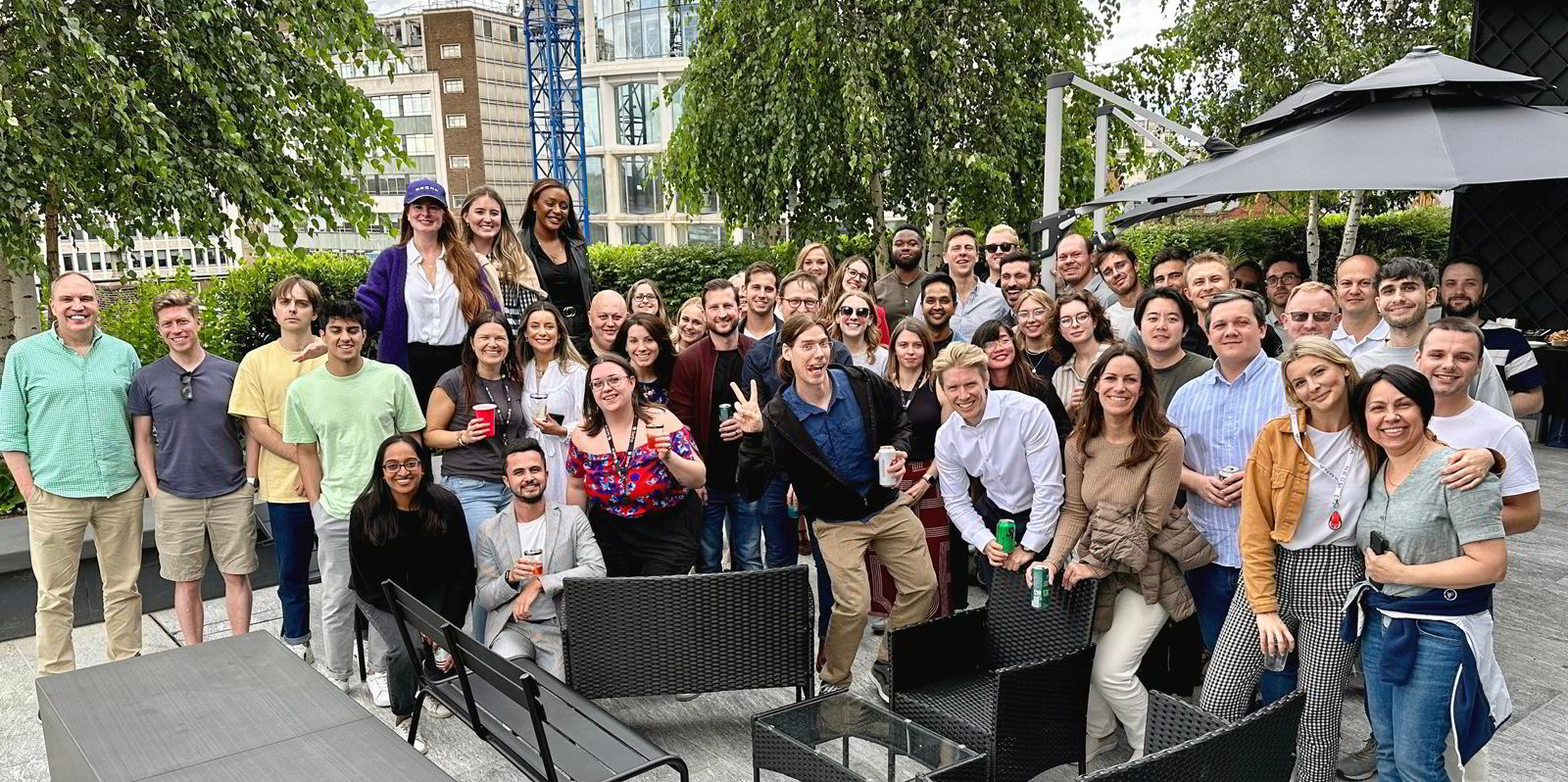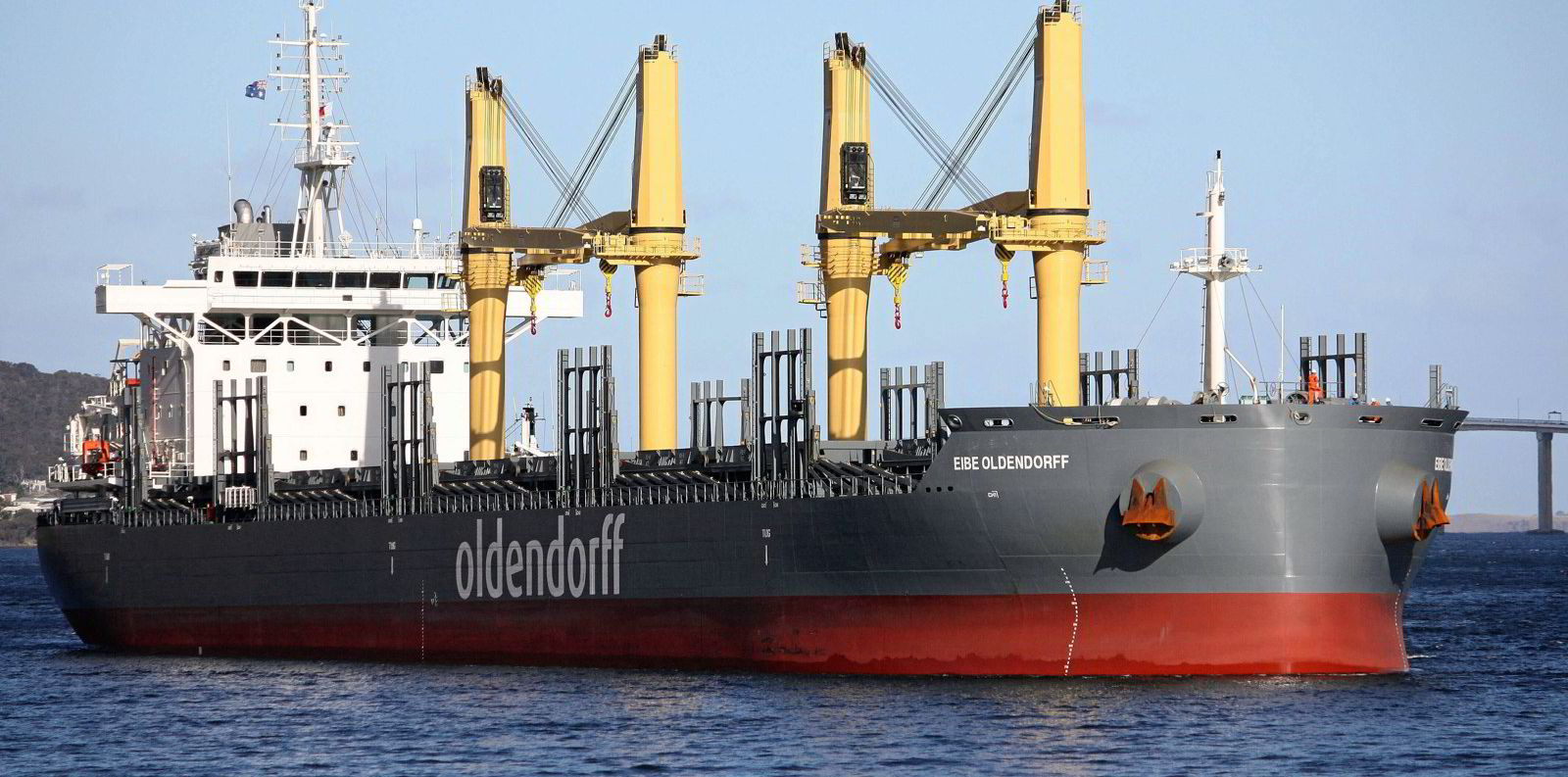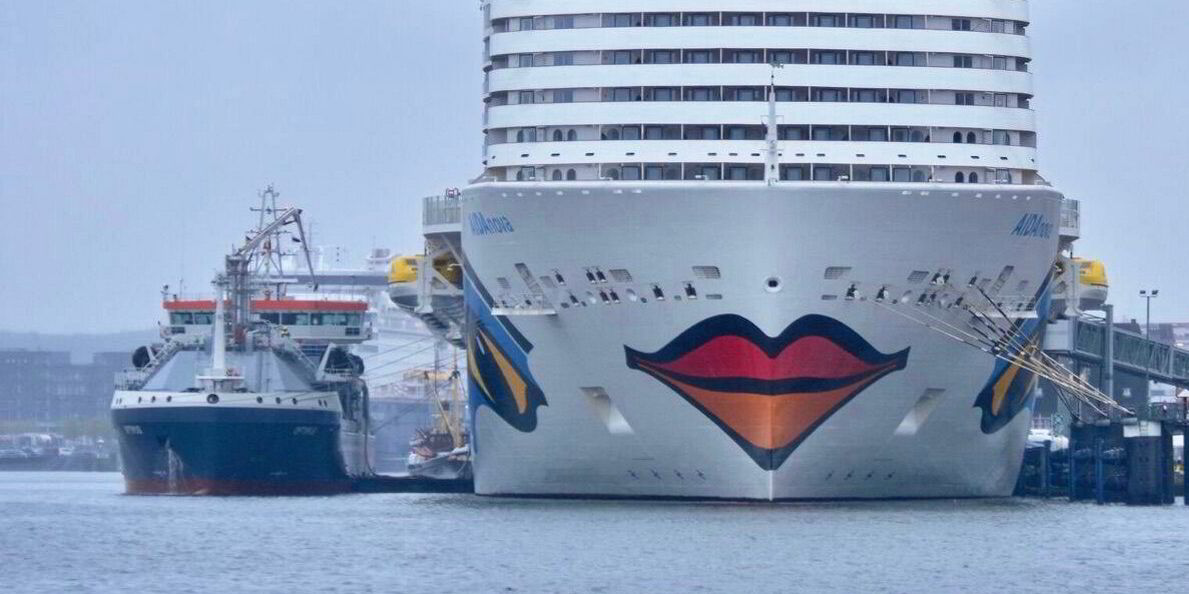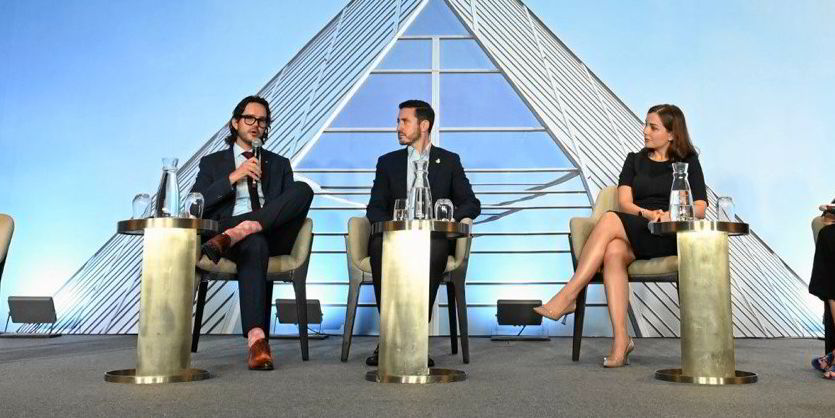Bill Dobie has spent much of his career straddling the worlds of digital technology and shipping.
He got his first taste of shipping in the 1990s at a ship agency business and then became a shipbroker, before working at bulker operator San Juan Navigation.
He loved the conversational nature of the industry and the opportunity to solve complex problems, but he also loved building software. Dobie went on to co-found cargo inspection software firm Navarik in 2000, started tech company Stage 3 Systems and made a name for himself as a “hacker for hire” in the shipping industry.

There was one inescapable communications tool at the heart of that work.
“Everywhere I went, I ran into email,” he told TradeWinds in an interview. “If anything, the more software I created, the more email I seemed to create.”
So it was in 2017 that Dobie founded Sedna, a London-based software company that helps shipping companies to, rather than escape their mountains of email, harness the value of what is buried in their inboxes.
That mission seems to have struck a chord.
As TradeWinds reported in July, Sedna has now raised a total of $86m, including a $42m funding round at a time when the capital markets for maritime technology companies are facing a more discriminating market for capital, as it continues to add customers. Sedna recently signed up oil giant Chevron as a customer, joining a list that includes commodities giant Glencore, shipowners and operators such as Norden, Oldendorff Carriers and Pacific Basin Shipping, and broking houses such as Ifchor Galbraiths.

Shipping may be hooked on email for the type of commercial interactions that it was perhaps not designed for, and even Dobie had what he described as “programmers’ arrogance” when he thought that he could help people to abandon email.
“There’s a lot of technology that wishes that email wasn’t at the centre of it,” he said, speaking over Zoom during a visit to his native city of Vancouver. “There are a lot of ways of working, in trade in particular and in maritime, where we wish this academic memoing protocol from the early 1970s would maybe not be how you would design a $100m trade.”
But Dobie eventually came to reject the view that the industry is technologically behind or unsavvy for depending on old ways, including email.
He formed a view that, instead, shipping professionals develop habits that help them manage risk and find opportunities, and changes in those habits can have negative environmental, safety, financial and legal consequences when they go wrong.
“The habits that people form, in how they do their work, are a key part of how they’re successful,” he said, explaining that new technology should not disrupt these habits.
“I think it’s actually the vendors’ obligation to skate where the puck is, to use a hockey analogy.”

Dobie said it was his customers that brought him to this view, beginning with work for commodities giant Glencore to help its shipping teams deal with email volume as the company switched from the Lotus Notes communications platform to Outlook.
He founded Sedna, named after the Inuit goddess of the sea, to foster “data-driven communication” that uses those email streams to, for example, take some actions automatically while at the same time flagging up important emails that the user should see immediately.
Sedna is a data-driven communications software company focused on the maritime sector.
- Founded: 2017
- Team footprint: With headquarters in London, Sedna has an office in Singapore and team members in Canada.
- Management team: Bill Dobie, chief executive; Robert Scott, chief financial officer; Dan Bailey, chief operating officer; and Cynthia Worley, vice president of strategic accounts; Leigh Steed-Middleton, senior vice president of engineering and product; and Warren Kucker, vice president of logistics solutions.
- Key investors: Insight Partners, Stride.VC, Chalfen Ventures, GK Goh Ventures and SAP.
- Key customers: Chevron, Norden, Oldendorff Carriers, Glencore, Pacific Basin Shipping, Ifchor Galbraiths, Louis Dreyfus Commodities, Fednav, Bunge, G2 Ocean, MOL Chemical Tankers, BBC Chartering, OMV, Stena Bulk, Viterra, Western Bulk, Jaguar, Ardmore Shipping, Mercuria, Biehl and SGM.
That thinking has evolved to an approach that is modelled on WeChat, the Tencent Holdings communications platform that is ubiquitous in China, in which maritime-specific applications are built on top of email, the way mobile phones serve as a platform for a plethora of apps. Sedna has integrations with key maritime tech platforms, such as voyage management systems by the likes of Veson Nautical and Q88, to pump context into users’ inboxes.
Dobie said Sedna has remained focused on continuing to focus on shipping’s email puzzle — which, the chief executive admitted, may make it seem like a boring company.
But solving that problem has resonated with users and investors because of the opportunity to save users valuable time — from minutes in a day to hours — to do their jobs more effectively.
Dobie also tied the recent investor interest in the company to the perfect storm of factors in shipping: the drive for decarbonisation, untangling supply chains made more complex in the wake of Russia’s war on Ukraine and the rise of artificial intelligence.
What does tackling email have to do with decarbonisation? In June, the company teamed up with vessel and voyage optimisation provider ZeroNorth to harness email data to make shipping more efficient.
After all, optimising the operations of shipping to cut greenhouse gas emissions requires data.
“It is extremely difficult to optimise if you can’t measure, and if the majority of the activity exists in email and you can’t extract that as data, … it makes it very hard to make genuine progress on the optimisation journey,” Dobie said.
Russia’s invasion of Ukraine, meanwhile, has forced massive changes in supply chains for food and energy, which Dobie said has in turn led to a surge in communications.
And then there are the increased compliance burdens.

A vessel operator on the shipping team of a major charterer who needs to watch for potentially sanctioned cargoes may not have time to open up 30 emailed documents to find evidence of suspicious ship-to-ship transfers. But algorithms can do that and spot the patterns.
“Sedna’s platform allows our customers to take those attachments and those emails, express them as data, and then they can build bots to check that,” the chief executive said.
And Dobie said shipping offers great problems for artificial intelligence to solve.
“We can help our customers be more efficient from a carbon point of view, we can help them re-engineer supply chains without having to build entirely new workflows, and we can allow them to benefit from AI in a very practical and meaningful way,” he said.
Skysail Advisors maritime tech specialist Jochem Donkers told TradeWinds that Sedna stands out among maritime tech firms in part because it is addressing a pain point that is very familiar to shipping.
“Few need to be convinced that resolving the email challenge will create immediate, tangible and visible value,” he said. “It saves hours per day on the chartering and operations desk in addition to better control over the critical business processes.”
After Sedna’s last fundraiser, Donkers said he would not be surprised if the company used the new cash in the bank to expand to other industries.

But Dobie said the company plans to use the new investor funding to help tell Sedna’s story to the maritime industry, as well as to make the platform easier to use, particularly for new users.
The cash may also allow Sedna to take advantage of opportunities to acquire companies in the maritime tech space, similar to its 2022 deal for freight forwarding automation specialist Shelly.
Dobie said there are other industries that could benefit from Sedna’s technology, and he admitted that he previously became distracted by exploring that idea.
“We find it really liberating that our criteria is to support faster global trade,” he said. “We know maritime is a massive market, because we see the millions of emails that get sent in maritime every day.”
Sedna does not consider itself an email company. Rather, Dobie describes it as a communications company.
And the company has envisioned a world beyond email. Dobie pointed to the way WeChat has become so much more than a messaging platform, serving as a portal to apps-within-the-app to serve “conversational commerce”, and he envisions a universe of applications and innovation that can flow over shipping’s communication stream.
But email is the second-biggest digital protocol, after the one that the internet itself is based on.

“The principal way of communicating in the shipping industry is email, and we actually think there needs to be a smarter, more resilient, more secure way of doing this. But you cannot do it until you can wrestle the beast,” the chief executive said.
So Dobie holds the view, which some consider counterintuitive, that much transformational change can be built on top of email, even though he is working towards a future with very little email.
“It’s not counterintuitive, because people buy efficiency. People buy effectiveness. And we should not be measured on how many emails we deliver,” he said.
“We should be measured on how many we eliminate.”





